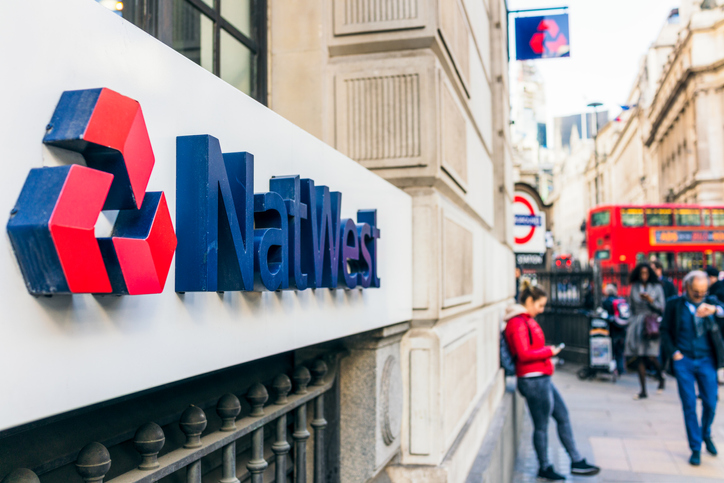ii view: investors like NatWest's strong capital cushion
Transformed since 2008, with mortgages a focus and a dividend being paid again. Buy, sell or hold?
22nd February 2021 15:29
by Keith Bowman from interactive investor
Transformed since 2008, with mortgages a focus and a dividend being paid again. Buy, sell or hold?

Full-year results to 31 December 2020
- Pre-tax loss of £351 million compared to a previous profit of £4.2 billion
- Loan impairments totalling £3.2 billion
- Net interest margin of 1.71% from a previous 1.97%
- Cost/income ratio up to 72.9% from 65.1%
- Capital cushion (CET1) of 18.5%, up from 16.2%
- Dividend of 3p per share
Chief executive Alison Rose said:
“Despite reporting a loss for the year, NatWest Group delivered a resilient underlying performance in a challenging operating environment. The bank continued to grow in key areas such as mortgages and commercial lending and our balance sheet remains strong, with one of the highest capital ratios amongst our UK and European peers. We have today announced our intention to pay a final dividend whilst reaffirming our commitment to regular capital returns for shareholders in the future.
“We made strong progress in executing the strategy we set out in February 2020 as we build a relationship bank for a digital world; a bank that will meet the rapidly evolving needs of our customers at different stages of their lives through an ever-increasing focus on digital and transformation. In turn, this will drive sustainable, long-term returns to our shareholders.
“We cannot be certain of the long-term impact of the pandemic. But we can be certain that our bank will continue to support those who need it most as we build back better. By championing potential and helping people, families and businesses to rebuild and thrive, we will succeed together."
ii round-up:
The bank has changed its name to NatWest Group (LSE:NWG) from Royal Bank of Scotland previously.
It serves around 19 million customers. Group brands include NatWest itself, Royal Bank of Scotland, Ulster Bank, Child & Co, Drummonds and Coutts.
In September 2019, the bank appointed new chief executive Alison Rose.
She was formerly the deputy CEO of NatWest Holdings and CEO of Commercial and Private Banking.
For a round-up of these full-year results, please click here.
ii view:
NatWest is a retail and commercial bank with operations in the UK and the Republic of Ireland. The bank’s journey through the financial crisis has few rivals. It has been restructuring since 2008, simplifying and reducing its operating footprint, cutting risky assets, building capital and reducing costs.
Fines and settlements regarding both the US mortgage securities crisis and the mis-selling of Payment Protection Insurance (PPI) have now been followed by significant provisions to cover potential Covid-19 related loan losses. That said, the 2020 loan impairment provision of £3.2 billion is below management’s prior estimate of up to £4.5 billion. News of Ulster Bank’s retreat from the Republic of Ireland (RoI) also simplifies things further.
For investors, the relatively new chief executive continues to try and reenergise the bank. Now paying a dividend again, the freeing up of capital following the withdrawal of Ulster Bank from the RoI and latest boost in the capital cushion to 18.5%, should both help underpin shareholder returns going forward.
Growth in the firm's mortgage business also improved after the purchase of a £3 billion mortgage book from Metro Bank (LSE:MTRO). It was NatWest’s first significant acquisition since the financial crisis and building on a key area of focus. But the bank is now far less diversified than it once was and, unlike other banks, the UK government’s 62% share stake still overhangs. With the shares up over 40% since late October prior to vaccine announcements, a period of share price consolidation may be overdue. However, a more inflationary environment and the possibility of interest rate increases further down the road would be a benefit longer term.
Positives
- Cost savings of £277 million exceeded management’s £250 million target
- Dividend payment reinstated
Negatives
- Covid uncertainty still persists
- Bank lacks the diversity of some rivals
The average rating of stock market analysts:
Hold
These articles are provided for information purposes only. Occasionally, an opinion about whether to buy or sell a specific investment may be provided by third parties. The content is not intended to be a personal recommendation to buy or sell any financial instrument or product, or to adopt any investment strategy as it is not provided based on an assessment of your investing knowledge and experience, your financial situation or your investment objectives. The value of your investments, and the income derived from them, may go down as well as up. You may not get back all the money that you invest. The investments referred to in this article may not be suitable for all investors, and if in doubt, an investor should seek advice from a qualified investment adviser.
Full performance can be found on the company or index summary page on the interactive investor website. Simply click on the company's or index name highlighted in the article.